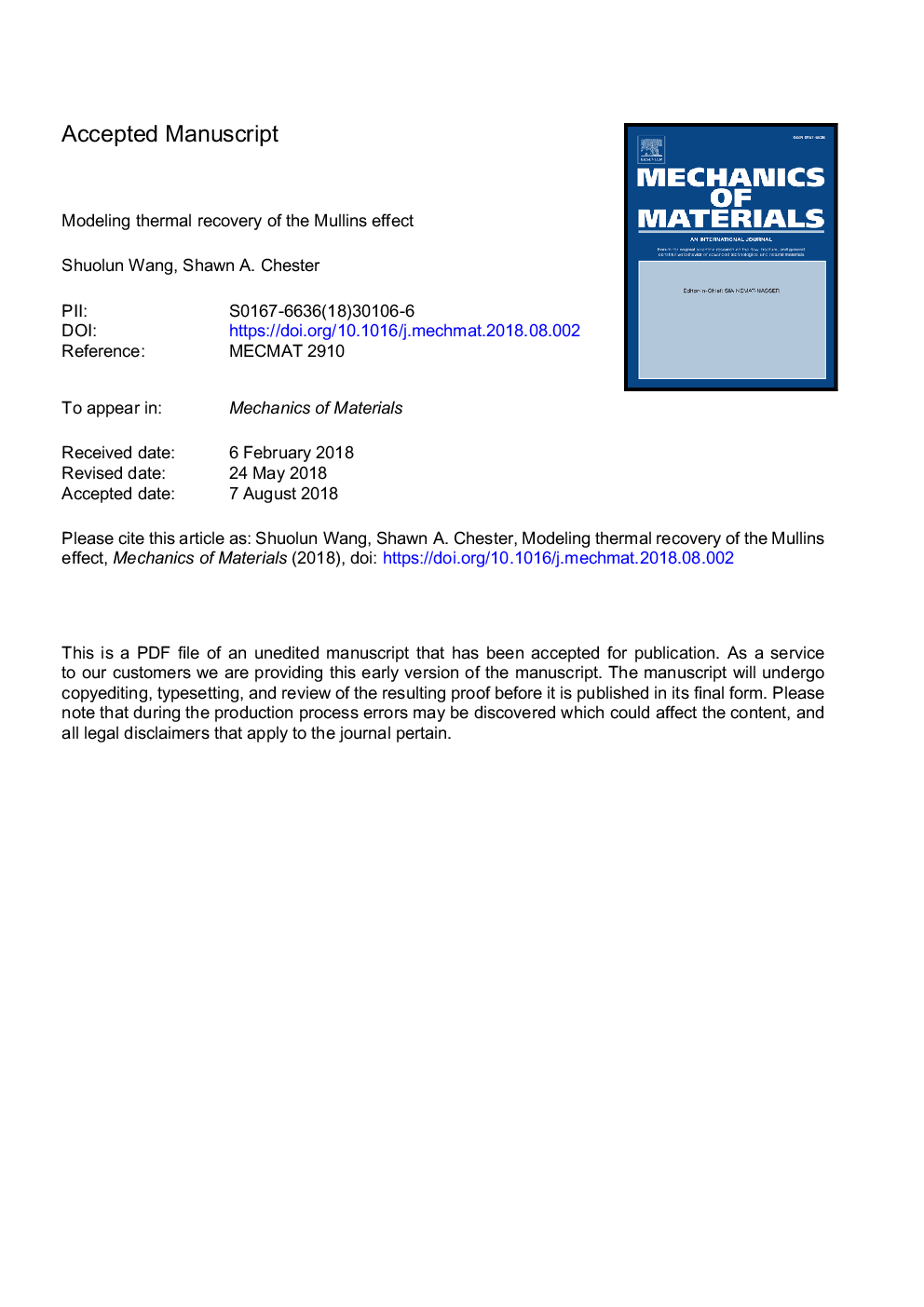| Article ID | Journal | Published Year | Pages | File Type |
|---|---|---|---|---|
| 9952794 | Mechanics of Materials | 2018 | 22 Pages |
Abstract
Many elastomeric materials exhibit the Mullins effect, or stretch-induced stress softening. However, early experiments show that the Mullins effect may be recovered after annealing previously stretched material in a stress-free state. And that both the rate and degree of recovery are affected by the annealing temperature. In this work, we develop a thermo-mechanically-coupled large-deformation constitutive model that quantitatively captures thermal recovery of the Mullins effect. The model is calibrated to experiments from the literature, and is numerically implemented by writing a user material subroutine for the finite element program Abaqus/Standard. Lastly, our simulation results suggest that unanticipated behavior due to recovery of the Mullins effect is possible.
Keywords
Related Topics
Physical Sciences and Engineering
Engineering
Mechanical Engineering
Authors
Shuolun Wang, Shawn A. Chester,
